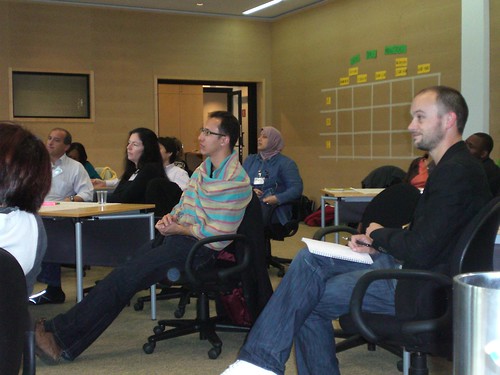This session was called to discuss how to develop a knowledge sharing strategy. Various examples were presented, including the Institutional Learning and Chance Strategy and Action Plan, the need for systematic needs assessment, analysis of stakeholders and desired outcomes.
Some factors to take into account when working on KS strategies, it is important to:
- When developing communications strategies, it is important to look at two levels -- one that looks at the global objectives like to "share our research outputs better" and the other that looks at more specific objectives such as to "share methodologies for writing better project proposals".
- Institutionalise learning issues
- Cover information and knowledge sharing aspects
- Ensure that knowledge sharing is done in combination with communications components
- Ensure as much face-to-face can be done in combination with virtual means
- Work with methods such as peer assists, etc. to increase understanding and appreciation of KS methods
- Make sure it is both centralised (leading the whole effort) and decentralised (have those who work on the plan)
- Look at the strategy from different perspectives; at each level, the issues and therefore the strategy will be different
- Identify existing knowledge sharing "groups" and build the strategy that already praises and highlights them
One thing that was echoed by many participants was that make sure that the term knowledge sharing is not perceived as a fashionable and trendy word but rather an approach that impacts and improves the way we work.

No comments:
Post a Comment